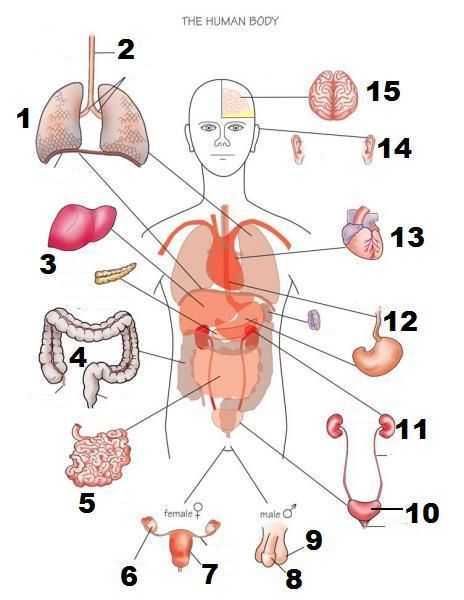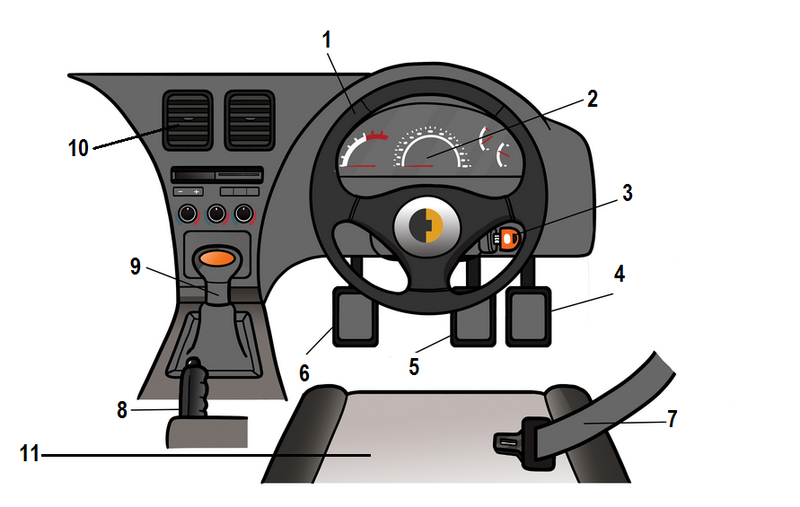Test your vocab knowledge in a foreign language
Re: Test your vocab knowledge in a foreign language
I am not a native Anglophone, but the only time I have heard “maize” was from German, Dutch and French people. Except they mere mispronouncing it as /maɪs/, so probably they didn't know the English word and were only using the word from their respective mother tongue.
The conlanger formerly known as “the conlanger formerly known as Pole, the”.
If we don't study the mistakes of the future we're doomed to repeat them for the first time.
If we don't study the mistakes of the future we're doomed to repeat them for the first time.
Re: Test your vocab knowledge in a foreign language
I've actually seen both in books from India. I have an Indian children's story where a bunny goes to visit her grandmother who gives him lots of food to eat, including "corn and maize."
Re: Test your vocab knowledge in a foreign language
Pedant alert: you can't pronounce something //, you pronounce it [] :).Pole, the wrote:Except they mere mispronouncing it as /maɪs/, so probably they didn't know the English word and were only using the word from their respective mother tongue.
The Dutch pronunciation is indeed [mɑjs] or [majs]. I don't think I've ever heard Dutch people pronounce it like that when speaking English, but I can imagine someone would (there's a lot of Dutch people who speak and/or pronounce English quite badly). I've learned at school (about 20 years ago), that the Brits call it "maize", but apparently that's old fashioned. The Wikipedia talk page on "maize" is dedicated to why it should be called "corn". Quite funny.
JAL
Re: Test your vocab knowledge in a foreign language
OK, here are the Malayalam terms for all of these (of course, as I already said, I didn't know most of these, so I looked them up and said so below). I'm including both the original picture and the English terms because I can't even identify some of these things just from the picture:
More: show
- Salmoneus
- Sanno

- Posts: 3197
- Joined: Thu Jan 15, 2004 5:00 pm
- Location: One of the dark places of the world
Re: Test your vocab knowledge in a foreign language
I grew up taught to call maize 'maize'. Generally, though, I would call the foodstuff 'sweetcorn'. I don't think I've ever heard anyone call it just 'corn', which would be weird to me, as 'corn' by itself is a cereal grain (primarily wheat). Except in phrases like ''corn-on-the-cob'.
So I would call the food 'sweetcorn'; however, I generally still call it 'maize' when it's actually out in the fields. Likewise I would be happy to talk about fields of corn, meaning fields of wheat (or other cereal) - but I rarely say 'corn' when talking about it as a food, as it's old-fashioned and potentially ambiguous.
I think it's important to know that 'corn' used to unproblematically mean 'wheat', though, because other than in the US, any appearance of the word in history and literature up to the sixties, and in economics for some time after that, will refer to wheat - from the King James Bible to the Corn Laws.
So I would call the food 'sweetcorn'; however, I generally still call it 'maize' when it's actually out in the fields. Likewise I would be happy to talk about fields of corn, meaning fields of wheat (or other cereal) - but I rarely say 'corn' when talking about it as a food, as it's old-fashioned and potentially ambiguous.
I think it's important to know that 'corn' used to unproblematically mean 'wheat', though, because other than in the US, any appearance of the word in history and literature up to the sixties, and in economics for some time after that, will refer to wheat - from the King James Bible to the Corn Laws.
Blog: [url]http://vacuouswastrel.wordpress.com/[/url]
But the river tripped on her by and by, lapping
as though her heart was brook: Why, why, why! Weh, O weh
I'se so silly to be flowing but I no canna stay!
But the river tripped on her by and by, lapping
as though her heart was brook: Why, why, why! Weh, O weh
I'se so silly to be flowing but I no canna stay!
Re: Test your vocab knowledge in a foreign language
So?jal wrote:Neither are the people that eat them in the 'Merica's.Qwynegold wrote:*If uneaten. Otherwise I don't know if we have words for these as corn is not native to Europe.
Ah, I see. It's difficult to make out in that picture.jal wrote:It's a window stay. It's used to keep a top tilting window open to a certain width.Qwynegold wrote:Window stuff: 8. What is this even?
JAL
That's interesting, because in Swedish korn means both grain and barley.Travis B. wrote:The word corn in English, like German Korn, originally meant the grain most commonly grown in an area, with the specialization to mean maize being specific to North American English.
Re: Test your vocab knowledge in a foreign language
There aren't words for any of those things in Malayalam.  We just use the English ones.
We just use the English ones.
Re: Test your vocab knowledge in a foreign language
Thanks. Yeah, speedometer. *slaps forehead* Oh, brake, duh!. *slaps forehead again* Seat belt - of course. I passively knew gear*, would probably have understood if someone mentioned it. I see I forget 11. Here you go.clawgrip wrote:Jal:
JAL
Re: Test your vocab knowledge in a foreign language
Dutch was interesting. I wish I could tell you that I knew any of those words in Dutch before but I can't.
BTW I don't think anyone says "safety belt." It's exclusively a "seatbelt" isn't? "Safety belt" sounds like a very understandable almost correct but ultimately incorrect guess.
Also I had to giggle at "gaspedaal." We say that in English too, "gas pedal." I always love these Dutch words which are basically one letter different from the English translation.
BTW I don't think anyone says "safety belt." It's exclusively a "seatbelt" isn't? "Safety belt" sounds like a very understandable almost correct but ultimately incorrect guess.
Also I had to giggle at "gaspedaal." We say that in English too, "gas pedal." I always love these Dutch words which are basically one letter different from the English translation.
Re: Test your vocab knowledge in a foreign language
Not even "stoel"? Shame on you! :)Viktor77 wrote:Dutch was interesting. I wish I could tell you that I knew any of those words in Dutch before but I can't.
Well, Google has indeed infinitly more mentions of "seat belt", but Wikipedia mentions "safety belt" as well, and Merriam Webster also has en entry for it.BTW I don't think anyone says "safety belt." It's exclusively a "seatbelt" isn't? "Safety belt" sounds like a very understandable almost correct but ultimately incorrect guess.
One letter difference, but a lot of different phonemes (and stress) :).Also I had to giggle at "gaspedaal." We say that in English too, "gas pedal." I always love these Dutch words which are basically one letter different from the English translation.
JAL
Re: Test your vocab knowledge in a foreign language
Ah I stand corrected on "safety belt."
Oh yea I know "stoel" I just forgot that it was in the list. And I knew "sleutal" but not "autosleutal."
Oh yea I know "stoel" I just forgot that it was in the list. And I knew "sleutal" but not "autosleutal."
Last edited by Viktor77 on Fri Mar 18, 2016 7:51 am, edited 2 times in total.
- alynnidalar
- Avisaru

- Posts: 491
- Joined: Fri Aug 15, 2014 9:35 pm
- Location: Michigan, USA
Re: Test your vocab knowledge in a foreign language
#9 could also be
More: show
I generally forget to say, so if it's relevant and I don't mention it--I'm from Southern Michigan and speak Inland North American English. Yes, I have the Northern Cities Vowel Shift; no, I don't have the cot-caught merger; and it is called pop.
Re: Test your vocab knowledge in a foreign language
Well, it's *is* in an auto :).Viktor77 wrote:And I knew "sleutel" but not "autosleutel." :P
JAL
Re: Test your vocab knowledge in a foreign language
I am fighting the temptation to label all of these in mock German.
Re: Test your vocab knowledge in a foreign language
Nope.clawgrip wrote:vijay, no words for any of them?
Nope. (Even 'chair' is borrowed from Portuguese, lol).Not even seat?
Yep.And wouldn't that mean that the language does have those words, but that they're just borrowed from English?
EDIT: Actually, I think it's tricky because cars are expensive, and middle-class people all over India tend to code-switch between English and their native languages all the time anyway, which makes it hard to make a clear distinction between loanwords and instances of code-switching. So it's possible that it really doesn't have any such words - at least, none that any of these people would actually recognize. Then again, middle-class people probably wouldn't be the ones driving the cars...but still. I feel it's hard to say definitively that they're loanwords per se.
Re: Test your vocab knowledge in a foreign language
Who drives the cars? Lower-class people? If so, surely they have words for the tools of their trade.
Re: Test your vocab knowledge in a foreign language
Also, Wikipedia has an article on ക്ലച്ച്, (clutch), so I think we can say that it's a real Malayalam word borrowed from English and not just code-switching. Also, messing around with Google translate and looking at image results, സീറ്റ് ബെൽറ്റ് (seat belt) seems to be fairly established.clawgrip wrote:Who drives the cars? Lower-class people? If so, surely they have words for the tools of their trade.
Re: Test your vocab knowledge in a foreign language
Yeah, but just because those are established words, does that necessarily mean they have become part of the language for good? I mean, what are the criteria for distinguishing between lexical adoption and code-switching?
Re: Test your vocab knowledge in a foreign language
I meant to edit my post, not quote it...oh well.Vijay wrote:Yeah, but just because those are established words, does that necessarily mean they have become part of the language for good? I mean, what are the criteria for distinguishing between lexical adoption and code-switching?
I would say that if it's a single word in an otherwise non-English sentence, and if it functions as a native word (case marking, articles, incorporation in verbs, what have you), and if the speaker is not fluent in the origin language, then it is a loanword, not code switching.
Last edited by clawgrip on Sat Mar 19, 2016 2:08 am, edited 1 time in total.
Re: Test your vocab knowledge in a foreign language
OK, maybe they're loanwords then.
Re: Test your vocab knowledge in a foreign language
Another thing is, if these words are generally expected to be understood by people not fluent in the source language, then they are probably loanwords. Like, if I talk to you about how both samurai and sumo wrestlers wear fundoshi, you will perhaps be confused by "fundoshi" but not samurai or sumo. This suggests that fundoshi is probably not a loanword, especially since if I showed you a picture of a fundoshi, you would probably call it a loincloth. But samurai and sumo are fine, so they are probably loanwords.




